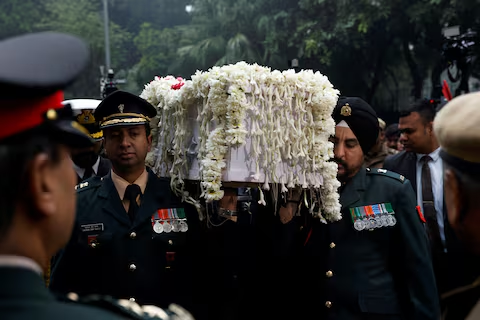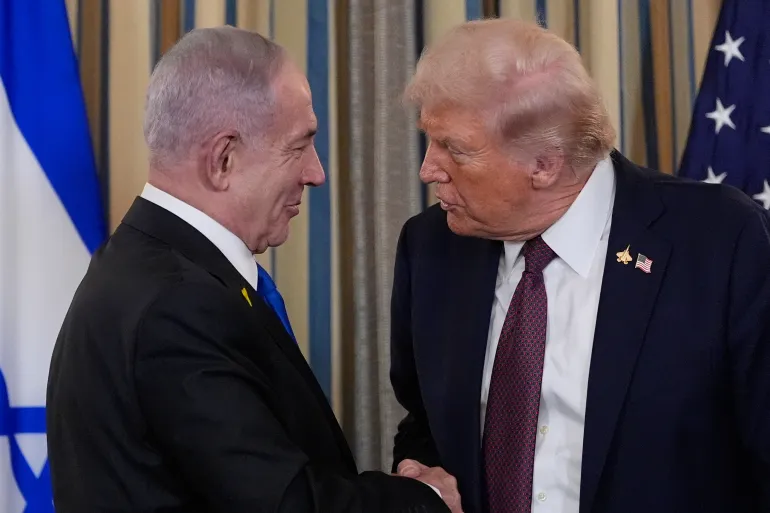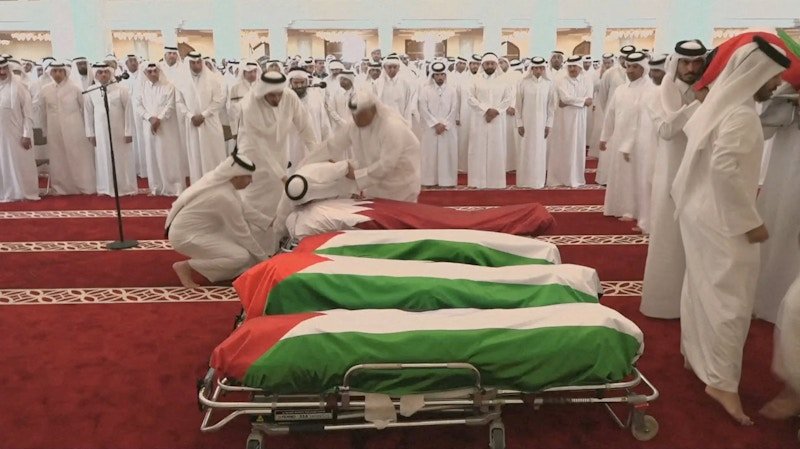Former Indian Prime Minister Dr. Manmohan Singh's State Funeral Conducted with Full Honors
The state funeral of former Indian Prime Minister Dr. Manmohan Singh was held at Delhi’s Nigambodh Ghat with full state honors and a 21-gun salute. On Saturday morning, his body was taken to the Congress Party headquarters, where party leaders and workers paid their final respects and chanted slogans of "Manmohan Singh Amar Rahe" (Long Live Manmohan Singh).
Former Indian Prime Minister Dr. Manmohan Singh's State Funeral Conducted with Full Honors
Former Indian Prime Minister Dr. Manmohan Singh's State Funeral Conducted with Full Honors
The state funeral of former Indian Prime Minister Dr. Manmohan Singh was held at Delhi’s Nigambodh Ghat with full state honors and a 21-gun salute. On Saturday morning, his body was taken to the Congress Party headquarters, where party leaders and workers paid their final respects and chanted slogans of "Manmohan Singh Amar Rahe" (Long Live Manmohan Singh).
Dr. Manmohan Singh, known as the architect of India’s economic reforms and the architect of the landmark nuclear deal with the United States, passed away on Thursday night at the age of 92. His death has prompted the declaration of a seven-day state mourning in India. During this period, all cultural and entertainment programs have been canceled, and the national flag is being flown at half-mast on government buildings.
Tributes Before the Funeral
On Saturday morning, Dr. Singh's body was brought to the Congress Party headquarters, where party leaders and workers paid their final respects. Congress leader Abhishek Bishnoi expressed grief, saying, "He spoke less, but his actions were incredibly impactful. His passing is a great loss for the country."
A Statesman of Significant Contributions
Dr. Manmohan Singh was a mild-mannered and honest politician who served as India’s Prime Minister for 10 years. As Finance Minister in 1991, he introduced economic reforms that transitioned India’s economy from a socialist model to a capitalist-oriented framework. Additionally, in 2008, he played a leading role in signing the nuclear deal with the United States, ending India’s nuclear isolation.
Two Terms as Prime Minister Under Congress Leadership
In 2004, Dr. Singh was chosen as Prime Minister by Sonia Gandhi. He was reelected in 2009. However, his second term was marred by allegations of financial corruption, particularly surrounding the organization of the 2010 Commonwealth Games, which led to the Congress Party’s significant defeat in the 2014 general elections.
A Memorable Apology and Message of National Unity
Dr. Singh was the first Sikh Prime Minister of India. He made a public apology in Parliament for the 1984 Sikh Massacre, during which thousands of Sikhs were killed following the assassination of then-Prime Minister Indira Gandhi by her Sikh bodyguards.
After stepping down as Prime Minister in 2014, Dr. Singh maintained a low profile and largely stayed out of the public eye.
His death has cast a shadow of grief across India’s political landscape, and his contributions will forever be remembered by the nation.










